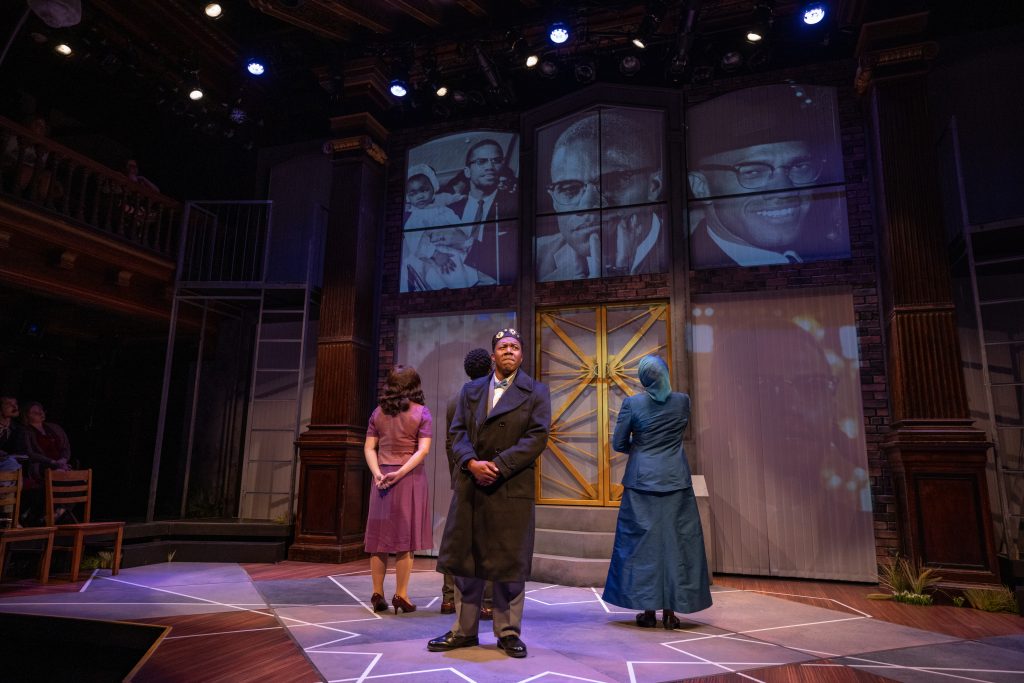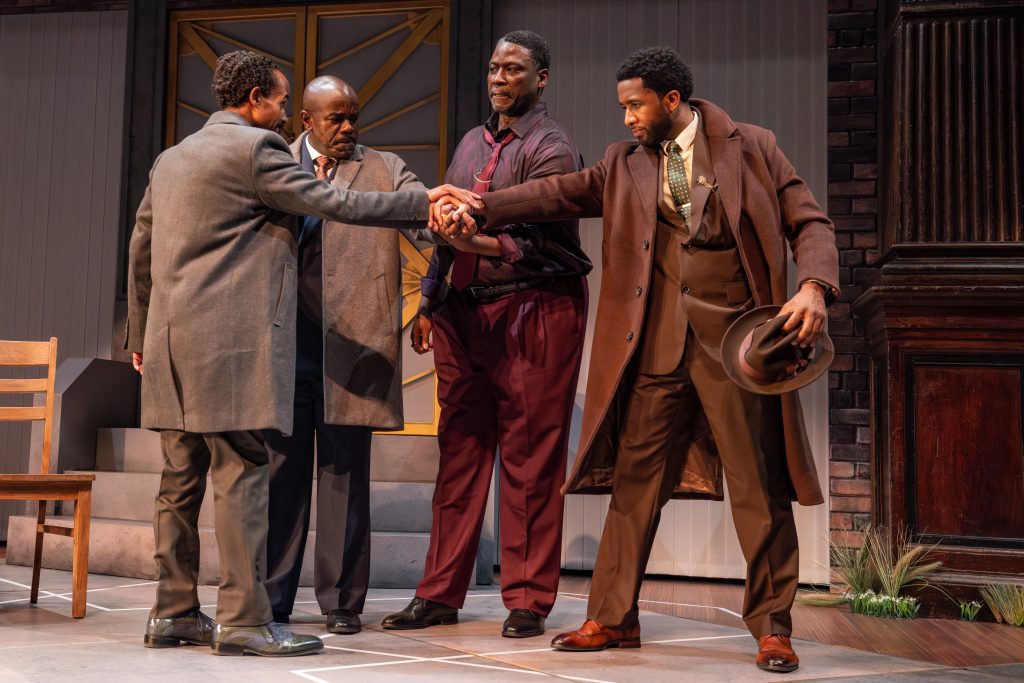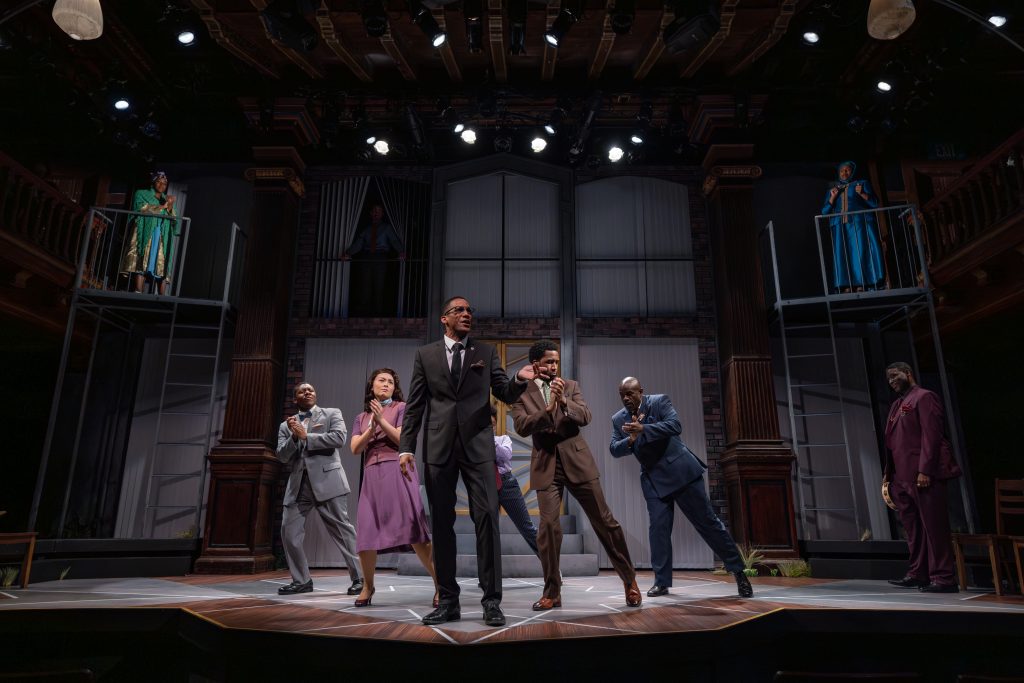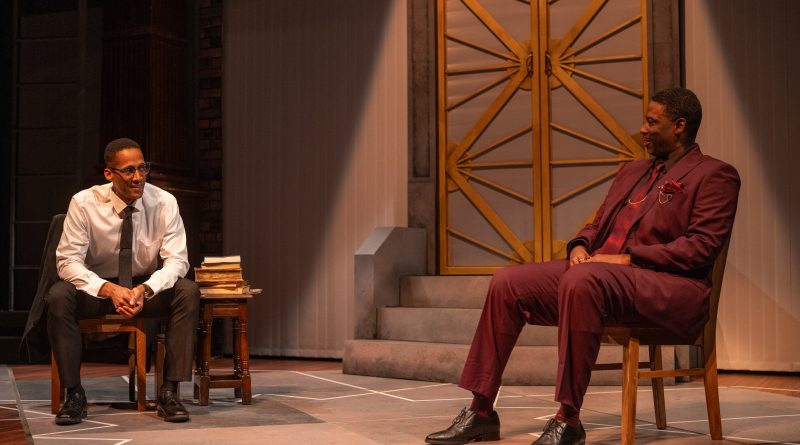Julius X at Folger: A Revolutionary Remix of Shakespeare & Malcolm X
In Julius X, now on stage at Folger Theatre, playwright Al Letson doesn’t simply reimagine Shakespeare’s Julius Caesar; he reconstructs it to fuse the life and legacy of Malcolm X with the ancient political intrigues of Rome.
The result is neither traditional Shakespeare nor a straight Malcolm biography, but a kind of collision –sometimes messy, often electric — between Caesar’s time and the radical urgency of 1960s Harlem.
Letson weaves Shakespeare’s familiar lines with his own verse and echoes of Malcolm’s speeches, and that interlacing carries two vast legacies within one frame. The overall effect is undeniably compelling.

Visually, the production walks a careful line between historical reference and symbolic abstraction. Costumes nod to 1960s Harlem without falling into costume-drama cliché, and the set by Jonathan Dahm Robertson allows the space to shift between public forums and intimate meeting rooms.
Julius X [Malcolm], is played by Brandon Carter with quiet fire and intellectual force. Carter’s Malcolm, like Shakespeare’s Caesar, is both leader and target, idealist and symbol. The result is a character who feels more like a prophet than a politician.
Opposite him, Greg Alverez Reid’s Brutus is morally tortured and torn, a man haunted by his own idealism. Reid gives depth to a figure often flattened in adaptations, showing his love, his fear, his betrayal.

Nikkole Salter’s Calpurnia stands out as a moral counterweight. And other supporting roles also shimmer, including Jonathan Del Palmer’s Marc Anthony, which translates Shakespeare into Harlem swagger.
At its core, Julius X is not about rewriting the past. It works — better than so many of the “re-imaginings” of Shakespeare plays that DC sees on stage lately — because it actually melds two stories that have strikingly similar conspiracies into a new play. In fusing Caesar’s fall with Malcolm’s life, Letson isn’t seeking easy parallels; he invites dissonance, tension, and reflection.

While it is not a flawless production, Julius X is a meditation on ambition, betrayal, collective responsibility, and the cost of vision. It asks: What does it mean to be a martyr? A brother? A revolutionary? And how do we mourn those we have lost to violence while resisting the systems that made their deaths?
Julius X continues through October 26 at the Folger Shakespeare Theatre.


